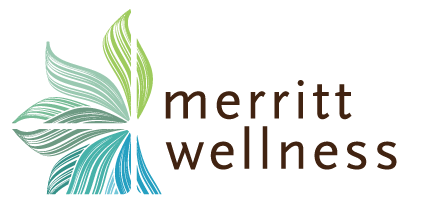Download this Cholesterol Myth (PDF) for the research substantiating this topic…
It is so ingrained in our psyches that cholesterol is bad and never learn the truth about why it’s good, and what we SHOULD actually be worried about. Needless to say, it’s a big topic, so this is just a short version to start you thinking, but you might want to see this:
GREATER DEATHS AT LOW CHOLESTEROL: Many studies have shown that all-cause deaths, especially deaths from cancer, are higher for individuals with cholesterol levels lower than 180. (Circulation 1992 86:3)
or what about this one?
WOMEN AND ELDERLY: In women and in the elderly, no appreciable difference in CHD rate for any level of cholesterol. In fact, for women of all ages and the elderly, higher cholesterol is associated with a longer lifespan. (Circulation 86, 1026-1029, 1992)
There’s plenty more where that came from. “But what about all the articles that show that eating fat causes cholesterol problems? or that cholesterol causes heart problems?” This is where I challenge you to learn about the research and what it ACTUALLy showed, because it wasn’t that. Download the PDF above to read more, or watch this very funny video on Youtube talking about the research “Big Fat Fiasco“
You need cholesterol for all sorts of things — for every single cell membrane in your body, to make your hormones, the make vitamin D, to heal injuries… the list goes on. Driving down cholesterol levels with a statin causes you to lose all those things and more. Want to know what drives up cholesterol?
- If your thyroid doesn’t work well
- If you’re stressed
- If you are injured or sick or have inflammation
- If your liver isn’t working well to clear it
It makes a lot more sense to figure out WHY your cholesterol is high rather than to just drive it down, leaving the root cause undiscovered to just create more problems.
People often look only at their total cholesterol, but what is much more important is to look at their HDL (the “good” cholesterol), the LDL (the “bad” which isn’t actually bad, since it’s the one that makes your hormones), your triglycerides, and your blood sugar. The LDL actually breaks down into 2 subparticles — a light, fluffy “good” kind, and a small, dense “bad” kind, and the small dense bad kind is what makes plaques. (there’s actually a blood test to see if you have all the light, fluffy or the small, dense, which we can easily run for you).
How does this happen? Despite the visual of the clogged sink caused by saturated fat that we’ve seen a million time, that’s actually untrue. There are two things that will contribute to plaques and they are insulin and rancid vegetable oils.
Insulin does its damage (and I’m simplifying this a little) by converting the light, fluffy LDL to the small, dense LDL. This is why diabetics have such a high rate of heart disease, and why heart disease is the biggest killer in this country because have you seen how we eat? CarbsSugarCarbsSugarHighFructoseCornSyupCarbs. Carbohydrate intake causes insulin to be released, and insulin (in the large amounts present) contribute to converting LDL into plaques.
Rancid vegetable oils are found in restaurants and processed foods and “familiar” oils, like corn, vegetable, soy, cottonseed, canola, etc. I always explain it like this: if you squeeze an olive, oil comes out, but if you squeeze corn… not really. To get oil out of those huge fields of corn and soy, you have to process it and the heat from processing damages the oil (just like overcooking it does). It’s deodorized and packaged so it doesn’t smell rancid. For more on this, check out The Oiling Of America.
These two factors might explain why, despite cutting down our saturated fat intake over the last few decades, heart disease has been climbing since the 1940’s and 50’s. We started replacing saturated fats with liquid oils, and then, in the 70’s and 80’s reducing our fat intake and replacing it with carbs. The most impactful actions you can take would be:
Remove liquid rancid vegetable oils from your diet as much as you can and use fats like coconut oil, avocado oil, olive oil, and butter. Remember that the French eat more saturated fat than anyone and have the least amount of heart disease!
Reduce your carb intake (and therefore insulin) to the levels we recommend in our office (see my video here on blood sugar) and why reducing insulin will change your chances of cancer, hypertension, heart disease, Alzheimer’s, and more.
Clearly this is a big topic and if you have more questions about your individual cholesterol panels, don’t hesitate to schedule a consult (in phone or in person) and we can talk about how you can REALLY reduce your chances of heart disease! Call us at 512-495-9015.


